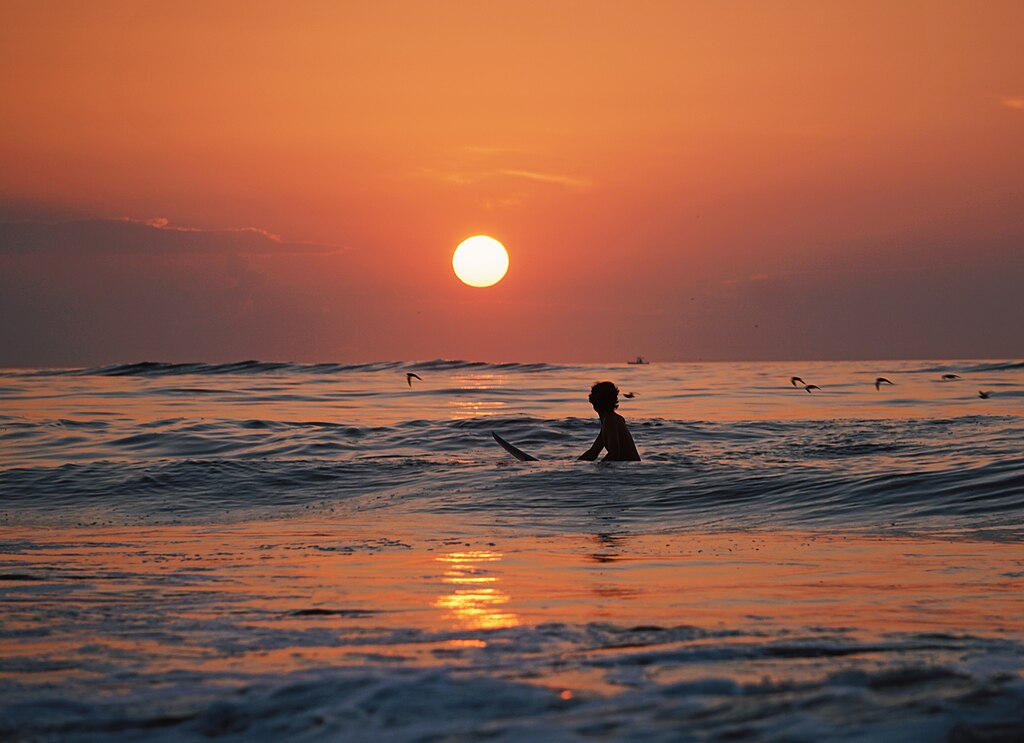I was 10 years old when I learned that the Earth could become uninhabitable and burn.
I was sitting in my fourth-grade class when our science teacher, Mrs. Kisby, projected pictures of starving polar bears, melting glaciers and drought-cracked soil.
We were then given an assignment to list the ways that we, the children, could prevent these things from happening in the future.
We pledged to use less water when brushing our teeth, carpool or bike to school, and plant trees.
When school ended, we stuffed our lists written into our Justin Bieber notebooks into our Miley Cyrus book bags. Then we’d go home and watch the Jonas Brothers sing about changing the planet on the Disney Channel, one recycling bin at a time.
For my generation, environmental education and celebrity are closely intertwined.
A decade later, my friends and I are still trying to save the planet through our daily routines.
We pick dirty clothes out of the laundry to save water from washing. We reuse pasta sauce jars as flower pots. We avoid plastic. We donate. We advocate.
And we are still fascinated with the lives of the rich and powerful people who fill our social media feeds and seem to exist above it all – or those who urge the rest of us normal people to “go green.”
But as young adults, I wonder if it is time to ask how much of this climate mess is our fault?
And when will we start demanding more from those who have the power and resources to make the biggest impact?
Your favorite celebrity is probably a big polluter
In 2022, the article “Just Plane Wrong: Celebs with the Worst Private Jet Co2 Emissions,” analyzed the airplane emissions for the top ten star-studded climate offenders in the world.
The names of the jet-set celebrities who racked up the most pollution are household names: Taylor Swift, Jay-Z, A-Rod, Steven Spielberg, Kim Kardashian, Oprah. And it went viral.
Many Americans were shocked to discover the disparity between their own carbon footprint and those who grace Hollywood Boulevard. And the backlash dripped through social media.
But it’s not exactly breaking news that the wealthiest are also the biggest contributors to climate change.
A study published by the PLOS Climate Journal found that the wealthiest 10% in the U.S. are responsible for 40% of the nation’s pollution. The study also found that those in the top 1% alone are linked to 15% to 17% of this pollution.
So while kids are taught the three R’s of recycling (reduce, reuse, recycle) and are made to feel guilty about using cling foil, Jeff Bezos and Elon Musk rocket to outer space, Saudi Arabia welcomes Neymar Jr. with a private Boeing 747, and Taylor Swift flies from Argentina to New York for dinner before flying to Brazil.
If it’s true that comparison is the thief of joy, then comparing CO2 emissions is the thief of sustainable living.
Why is there such an intense focus and pressure on changing metal straws to paper and bringing tote bags to grocery stores while we silently die for the celebrities and affluents in our daily lives? And what can be done about it?
Carbon tax for celebrities
There are better ways to address climate change than guilt trips.
So, no, you do not have to burn your Taylor Swift Eras t-shirt. And no, you do not have to return your Beyonce Renaissance one either.
The PLOS Climate study suggests that alternative policy solutions are possible after acknowledging the carbon disparities between various tax brackets.
Policymakers should be encouraged to tax top earners who make money and become more famous while polluting, which may pressure the wealthy to adopt more environmentally-friendly lifestyles.
This would also raise additional tax revenue to fund things like public transportation, alternative energy sources, and infrastructure upgrades needed to adapt to the changing climate – the things that lawmakers often say we don’t have enough money for.
In other words, if Travis Kelce and Taylor Swift are going to fly across the globe to see each other every weekend, then lawmakers should make sure the climate isn’t paying for it.
And when we scroll through our phones to read headlines about celebrities and rising sea levels, we need to remember who has the power to prevent these disasters and hold them accountable — even if they happen to be your top artist on Spotify.







